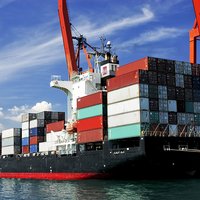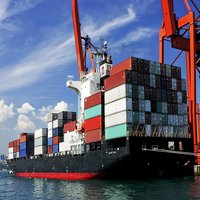Synthesis Report on Europe's Largest Port Online
Background studies complement report on decarbonisation in the transport and logistics sector of the Port of Rotterdam

Background studies complement report on decarbonisation in the transport and logistics sector of the Port of Rotterdam

The Port of Rotterdam is one of the pioneers in the reduction of greenhouse gas emissions. It is the largest port in Europe and extends over 40 kilometres to the North Sea coast. Its ambitious goal: the port wants to reduce greenhouse gas emissions from its industrial cluster as well as from freight traffic to a large extent. For the study "Deep Decarbonisation Pathways for Transport and Logistics Related to the Port of Rotterdam" the Wuppertal Institute analysed available options for the maritime as well was hinterland transports on behalf of the Rotterdam Port Authority.
The 2050 scenarios by the Wuppertal Institute show that decarbonisation will significantly change both, volume and structure of the transported goods – which add to the on-going trend from bulk to container transport. This will have considerable structural effects on port operations and in particular on hinterland traffic. A comprehensive decarbonisation (>95 per cent) will require significant efficiency improvements through operational and technical measures and the switch to non-fossil fuels, as well as a strong shift of container transport from road transport to rail and inland navigation. For maritime shipping to and from Rotterdam two feasible pathways towards full decarbonisation by 2050 are presented. Both include a stepwise shift towards renewable electricity based energy carriers for ships (liquids and gaseous for long distances and hydrogen and electricity for shorter distances).
Finally the report derives a set of recommendations for the Port Authority as well as the Dutch, German and European policymakers to support the transition towards a drastic reduction of greenhouse gase (GHG) emissions from in the transport sector and for using this as a strategy for a sustainable economic development.
The complete study is available on the publication server of the Wuppertal Institute. Further information on the "PoR Transport" project can be found in the following link.
